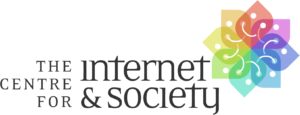Digital rights groups in India and Pakistan have adapted the Ranking Digital Rights Corporate Accountability Index methodology to evaluate if and how telecommunications and internet companies in those countries disclose commitments to users’ freedom of expression and privacy.
 The Centre for Internet and Society, an internet research institute based in India, applied the 2017 Index methodology to evaluate eight telecommunications and internet companies operating in India. Findings showed while companies demonstrated some commitment to users’ privacy, most fell short in key areas. The organization held an event in January 2017 to launch the report as well as a rankathon for participants to learn more about the companies evaluated and to provide feedback on the methodology and ways to adopt it for future research.
The Centre for Internet and Society, an internet research institute based in India, applied the 2017 Index methodology to evaluate eight telecommunications and internet companies operating in India. Findings showed while companies demonstrated some commitment to users’ privacy, most fell short in key areas. The organization held an event in January 2017 to launch the report as well as a rankathon for participants to learn more about the companies evaluated and to provide feedback on the methodology and ways to adopt it for future research.
 In December 2016, Pakistan-based Digital Rights Foundation published a study examining privacy-related disclosures of five telecommunications companies, based on privacy indicators adapted from the Index methodology. Findings showed that not all privacy policies were available in Urdu or other languages commonly spoken in Pakistan, and that company policies for responding to government requests for user data were often unclear. The organization’s executive director, Nighat Dad, discussed some of these findings at our roundtable session at RightsCon on how to conduct research and advocacy focused on ICT companies.
In December 2016, Pakistan-based Digital Rights Foundation published a study examining privacy-related disclosures of five telecommunications companies, based on privacy indicators adapted from the Index methodology. Findings showed that not all privacy policies were available in Urdu or other languages commonly spoken in Pakistan, and that company policies for responding to government requests for user data were often unclear. The organization’s executive director, Nighat Dad, discussed some of these findings at our roundtable session at RightsCon on how to conduct research and advocacy focused on ICT companies.
These types of projects using the Index methodology allow for more in-depth analysis of how companies in different countries or regions commit to respecting users’ rights. We encourage researchers and civil society to adapt the Index methodology to launch research initiatives evaluating company disclosures of policies affecting users’ freedom of expression and privacy in their own countries and contexts.




